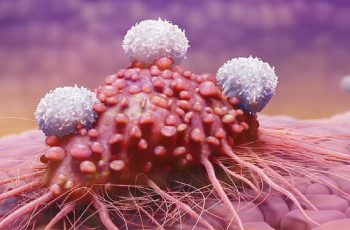Potassium is a crucial mineral that plays a vital role in the proper functioning of my body. It helps in the functioning of nerves, muscles, and the heart, as well as in the movement of nutrients and waste in and out of cells. When I have abnormally low levels of potassium, it is known as potassium deficiency or hypokalemia.
While some people with low potassium may not experience any symptoms, others may notice muscle weakness, muscle cramps, and abnormal heart rhythms. It is important for to recognize symptoms of low potassium and seek medical attention to address the deficiency.
Symptoms of Low Potassium Overview
- Low potassium levels can lead to symptoms such as muscle weakness, muscle cramps, and abnormal heart rhythms.
- Potassium deficiency, also known as hypokalemia, occurs when the body has abnormally low levels of potassium.
- Causes of potassium deficiency include climate, physical activity level, certain medications, and insufficient dietary intake of potassium.
- Potassium deficiency is diagnosed through a blood test and can be treated with oral supplements or intravenous potassium infusion.
- Severe hypokalemia can lead to complications such as irregular heartbeat, so it is important to address the deficiency.
What is Potassium Deficiency?
Potassium deficiency, also known as hypokalemia, occurs when the body has abnormally low levels of potassium. This mineral is essential for various bodily functions, including nerve and muscle function, as well as the movement of nutrients and waste in and out of cells.
Some people may not experience any symptoms of low potassium, while others may notice signs such as weakness, fatigue, muscle cramps, and abnormal heart rhythms. The symptoms of low potassium may vary in adults, women, and men.
It is important to be aware of these signs and seek medical attention if necessary.
Causes of Potassium Deficiency
Understanding the causes of potassium deficiency is crucial in identifying and addressing this condition effectively. Several factors can contribute to low potassium levels in the body:
- Climate: Extreme hot weather conditions, excessive sweating, and dehydration can lead to potassium loss.
- Level of physical activity: Intense workouts or participation in endurance sports may cause potassium depletion due to increased sweating and loss of electrolytes.
- Use of diuretic medicines: Certain medications, such as diuretics, commonly used to treat conditions like high blood pressure or heart failure, can increase potassium excretion in the urine.
- Sodium consumption: Consuming a diet high in sodium can disrupt the balance of potassium levels in the body.
- Dehydration: Inadequate fluid intake or excessive fluid loss through illnesses like vomiting or diarrhea can result in potassium deficiency.
- Certain medications: Some medications, including certain antibiotics, corticosteroids, and laxatives, can interfere with potassium absorption or increase its excretion.
- Chronic kidney disease: Impaired kidney function can affect the body’s ability to regulate potassium levels, leading to deficiencies.
- Endocrine or metabolic problems: Conditions like hyperaldosteronism or Cushing’s syndrome can disrupt the balance of potassium in the body.
- Low magnesium levels: Magnesium is necessary for the proper absorption and utilization of potassium in the body. Low magnesium levels can affect potassium regulation.
- Insufficient dietary intake of potassium: Not consuming enough potassium-rich foods, such as fruits, vegetables, and legumes, can result in low potassium levels.
Recognizing these potential causes and understanding the signs of low potassium in the body is essential for identifying and addressing potassium deficiency effectively.
Diagnosing and Treating Potassium Deficiency
Potassium deficiency is a condition that can be diagnosed through a blood test. This test is typically ordered as part of a routine medical examination or if a person has high blood pressure or kidney disease. By measuring the potassium levels in the blood, healthcare providers can determine if there is a deficiency.
If a potassium deficiency is detected, further tests may be conducted to identify the underlying cause. These additional tests may include urine tests, kidney function tests, and electrocardiogram (ECG) to check heart rhythm.
Once a diagnosis has been made, treatment options for low potassium levels can be explored. In mild cases, oral potassium supplements may be prescribed under medical supervision to help restore balance. For severe cases or when immediate potassium replenishment is required, intravenous (IV) potassium infusion may be necessary.
It is important to note that treating potassium deficiency involves more than just supplementing with potassium. Healthcare providers will also address the root cause of the deficiency, which could include adjusting medications, altering diet, or treating any underlying conditions that may be contributing to the low potassium levels.
It is crucial to consult a healthcare provider for proper diagnosis and appropriate treatment. Self-diagnosis and self-medication should be avoided as they can lead to complications and potentially worsen the condition.
Symptoms of low potassium or potassium deficiency include:
- Muscle weakness
- Muscle cramps
- Irregular heart rhythms
By seeking medical attention and following the recommended treatment plan, individuals can effectively manage potassium deficiency and restore optimal potassium levels in the body.
Complications of Potassium Deficiency
Severe hypokalemia, or low potassium levels, can have serious complications, including an irregular heartbeat, also known as arrhythmia. In individuals with underlying heart conditions, low potassium levels can increase the risk of cardiovascular issues and potentially life-threatening situations. While low potassium itself may not cause isolated symptoms, it is crucial to address the deficiency in order to prevent these complications.

Recognizing and treating potassium deficiency is essential for maintaining overall health and wellbeing. By ensuring adequate potassium levels, individuals can minimize the risk of complications associated with low potassium. Consulting with a healthcare professional is important to receive appropriate guidance and to develop a personalized plan to address potassium deficiency effectively.
Preventing Potassium Deficiency
In most cases, potassium deficiency can be prevented by consuming a healthy and balanced diet that includes foods rich in potassium. It is essential to be mindful of potassium levels, especially if there are factors that may increase the risk of deficiency, such as taking diuretic medication.
Include Potassium-Rich Foods in Your Diet
- Bananas
- Oranges
- Avocados
- Spinach
- Sweet potatoes
- Tomatoes
These are just a few examples of potassium-rich foods that you can incorporate into your meals and snacks. By including a variety of potassium-rich foods in your diet, you can help ensure that you are meeting your body’s potassium needs and reducing the risk of potassium deficiency.
Consult with a Healthcare Provider
If you are at risk of potassium deficiency or have concerns about your potassium levels, it is advisable to consult with a healthcare provider. They can assess your specific needs and provide guidance on maintaining optimal potassium levels. Regular check-ups and monitoring of potassium levels may be necessary, especially if you have certain medical conditions or take medications that can affect potassium balance.
Stay Hydrated
Proper hydration is also important for maintaining balanced potassium levels. Drinking an adequate amount of water throughout the day can help ensure that your body functions optimally and efficiently. Aim to drink at least 8 glasses of water a day, or more if you engage in physical activity or live in a hot climate.
By following these preventive measures, you can take control of your potassium levels and reduce the risk of potassium deficiency. Remember, prevention is key when it comes to maintaining overall health and well-being.
Importance of Potassium in the Body
Potassium is a mineral that plays a crucial role in maintaining the proper functioning of our bodies. Its importance cannot be overstated, as it is involved in numerous bodily functions that are vital for our health and well-being.
One of the primary functions of potassium is its involvement in skeletal and smooth muscle contraction and growth. This means that it is essential for the proper functioning of our muscles, allowing us to move, exercise, and perform daily activities with ease.
Potassium also plays a key role in fluid regulation, ensuring that our body maintains the right balance of fluids both within and outside our cells. This helps to optimize hydration levels and supports the functioning of various organs and systems.
Furthermore, potassium is critical in maintaining acid-base balance in the body, which is necessary for overall health. It helps to regulate the pH levels of our blood and other bodily fluids, ensuring that they remain at optimal levels for proper functioning.
Additionally, potassium is involved in carbohydrate metabolism, helping to convert the sugars and starches we consume into energy that our bodies can use. This energy production process is essential for fueling our daily activities and maintaining overall vitality.
Research has also shown that potassium is associated with blood pressure and heart health. Adequate potassium intake has been linked to a lower risk of developing high blood pressure, reducing the risk of cardiovascular diseases, such as stroke. Furthermore, potassium has been found to have a positive impact on the prevention of osteoporosis in elderly females.
Recognizing the importance of potassium in the body is crucial for maintaining optimal health and well-being. It emphasizes the need to ensure that we have adequate levels of potassium through proper nutrition and supplementation if necessary. By addressing any deficiencies promptly, we can support the proper functioning of our muscles, regulate fluid balance, maintain acid-base equilibrium, facilitate energy production, and reduce the risk of various health complications.

Conclusion
Recognizing the symptoms of low potassium is crucial for maintaining optimal health. Muscle cramps, constipation, weakness, fatigue, and abnormal heart rhythms are among the signs that may indicate a deficiency. By understanding the causes, diagnosis, treatment, and prevention of potassium deficiency, individuals can take appropriate measures to address any imbalances and ensure the proper functioning of the body.
Consultation with healthcare providers is paramount for accurate diagnosis and effective management of potassium deficiency. Medical professionals can conduct blood tests and determine the underlying cause of the deficiency, prescribe appropriate treatment options, and offer guidance on preventative measures. This collaboration between individuals and healthcare providers is key to maintaining adequate potassium levels and promoting overall well-being.
Remember, potassium is an essential mineral that plays a vital role in various bodily functions. By staying aware of the symptoms, seeking medical attention when necessary, and incorporating potassium-rich foods into your diet, you can support your overall health and avoid the complications associated with potassium deficiency.
FAQ
What are the symptoms of low potassium?
Symptoms of low potassium, also known as hypokalemia, can include muscle weakness, muscle cramps, fatigue, abnormal heart rhythms, and constipation.
What is potassium deficiency?
Potassium deficiency, or hypokalemia, occurs when the body has abnormally low levels of potassium. It can affect adults, women, and men.
What causes potassium deficiency?
Potassium deficiency can be caused by factors such as climate, physical activity level, diuretic medication use, sodium consumption, dehydration, certain medications, chronic kidney disease, endocrine or metabolic problems, low magnesium levels, and insufficient dietary intake of potassium.
How is potassium deficiency diagnosed and treated?
Potassium deficiency is diagnosed through a blood test. Treatment options include oral supplements, intravenous potassium infusion for severe cases, and addressing the underlying cause of the deficiency. It is important to consult a healthcare provider for proper diagnosis and treatment.
What are the complications of potassium deficiency?
Severe hypokalemia can be life-threatening and may lead to complications such as irregular heartbeat (arrhythmia). It is crucial to address the deficiency to prevent potential complications, especially in individuals with underlying heart conditions.
Can potassium deficiency be prevented?
Yes, potassium deficiency can be prevented by consuming a healthy and balanced diet that includes foods rich in potassium. It is important to consult with a healthcare provider and monitor potassium levels, especially for individuals at risk of deficiency.
What is the importance of potassium in the body?
Potassium is crucial for various bodily functions, including muscle function, fluid regulation, acid-base balance, carbohydrate metabolism, and more. It is associated with blood pressure and heart health, reducing the risk of stroke, and preventing osteoporosis in elderly females.
What can be concluded about the symptoms of low potassium?
Recognizing the symptoms of low potassium is essential for maintaining optimal health. By understanding the causes, diagnosis, treatment, and prevention of potassium deficiency, individuals can take appropriate measures to address any imbalances and ensure the proper functioning of the body.




